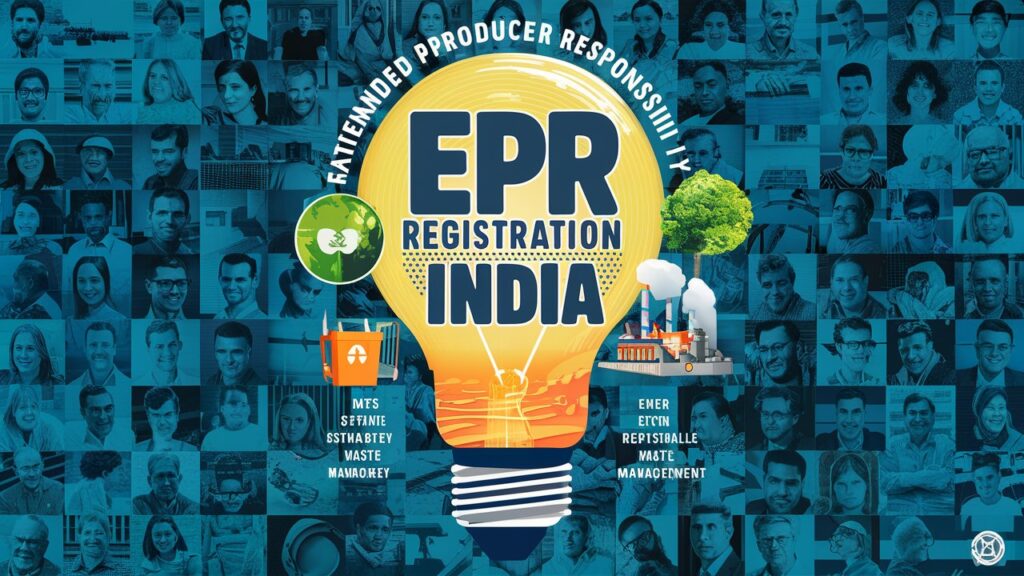EPR Registration in India: A Guide for Producers

What is EPR Registration?
EPR stands for Extended Producer Responsibility. In India, EPR registration is mandated under the E-waste (Management) Rules, 2016. It makes producers of electrical and electronic equipment (EEE) accountable for the entire life cycle of their products, including collection, processing, and recycling of e-waste.
Who Needs EPR Registration?
- Indian manufacturers of EEE
- Importers of EEE
- Brand owners introducing EEE into the Indian market
Categories Covered Under EPR:
A wide range of electronic products fall under EPR regulations. You can find a complete list on the Central Pollution Control Board (CPCB) website: https://cpcb.nic.in/rules-6/
Benefits of EPR Registration:
- Environmental Responsibility: Fulfills the obligation to manage e-waste responsibly and minimizes environmental impact.
- Brand Reputation: Showcases commitment to sustainability and enhances brand image among environmentally conscious consumers.
- Compliance: Ensures adherence to e-waste management regulations and avoids potential penalties for non-compliance.
Types of EPR Registration:
- Individual Producer Registration: Producers with a significant market presence can establish their own collection and recycling network.
- Collective Producer Responsibility Organization (CPO) Registration: Producers can join forces and register under a CPO, which takes on the e-waste management responsibilities on their behalf.
Process for EPR Registration:
- Identify Registration Type: Decide whether to register individually or through a CPO based on your production volume and market reach.
- Gather Documents: Compile required documents, such as company registration details, product category details, and estimated annual sales volume.
- Online Registration: Visit the CPCB EPR Portal (https://cpcb.nic.in/rules-6/) and register electronically.
- Fee Payment: Pay the prescribed registration fee based on your producer category.
- Target Setting and Updation: The CPCB will assign recycling targets based on your product category. Regularly update the portal with your e-waste collection and processing data.
Additional Considerations:
- Consider seeking professional guidance to navigate the registration process and ensure compliance.
- Maintain proper records of e-waste collection and recycling activities for future audits.
- Explore partnering with authorized e-waste collection and recycling facilities to fulfill your EPR obligations.
Resources:
- Central Pollution Control Board (CPCB): https://cpcb.nic.in/rules-6/
- Ministry of Environment, Forest and Climate Change (MoEFCC): https://moef.gov.in/moef/index.html
Remember: This is a general overview. It’s recommended to refer to the CPCB website for the latest regulations and detailed procedures.
